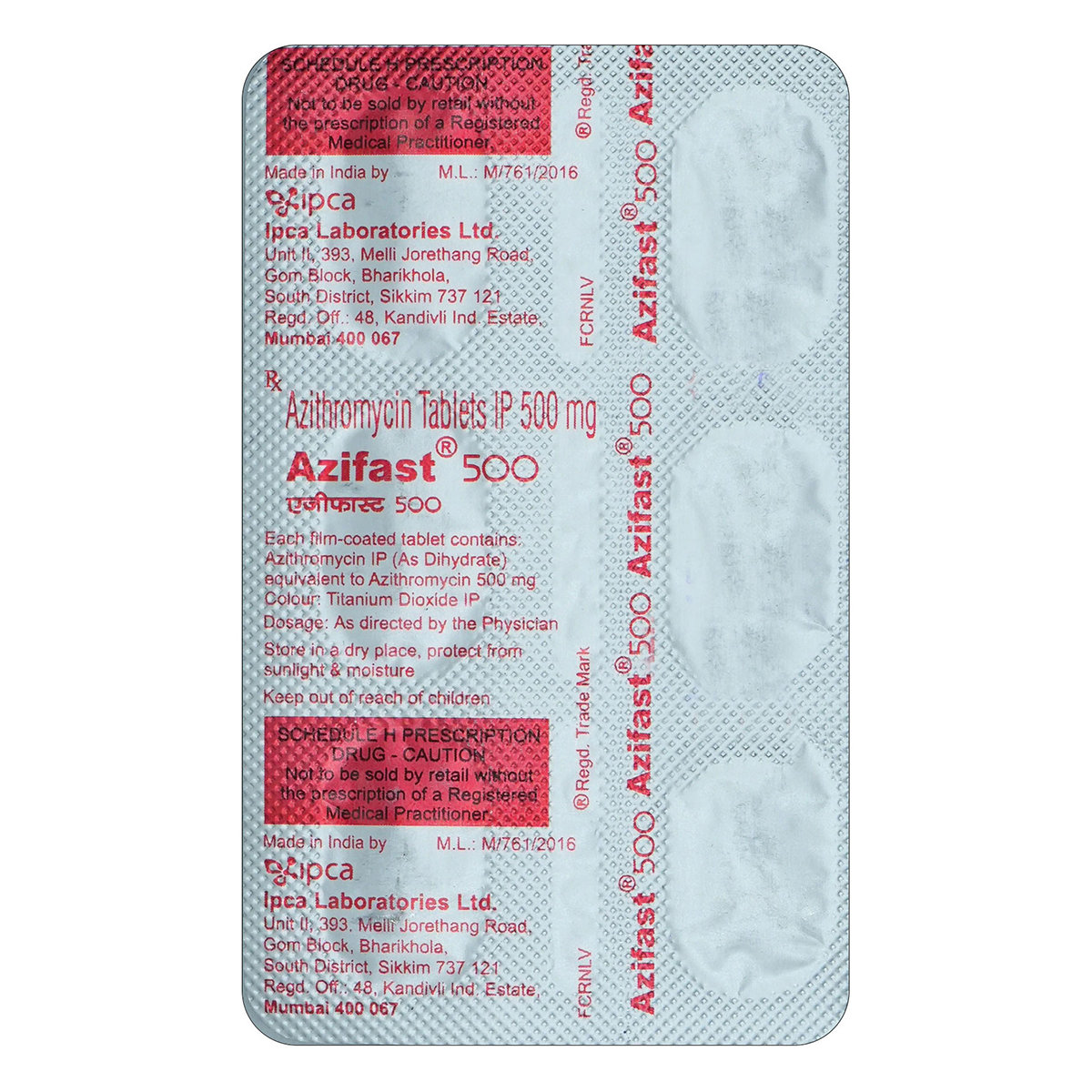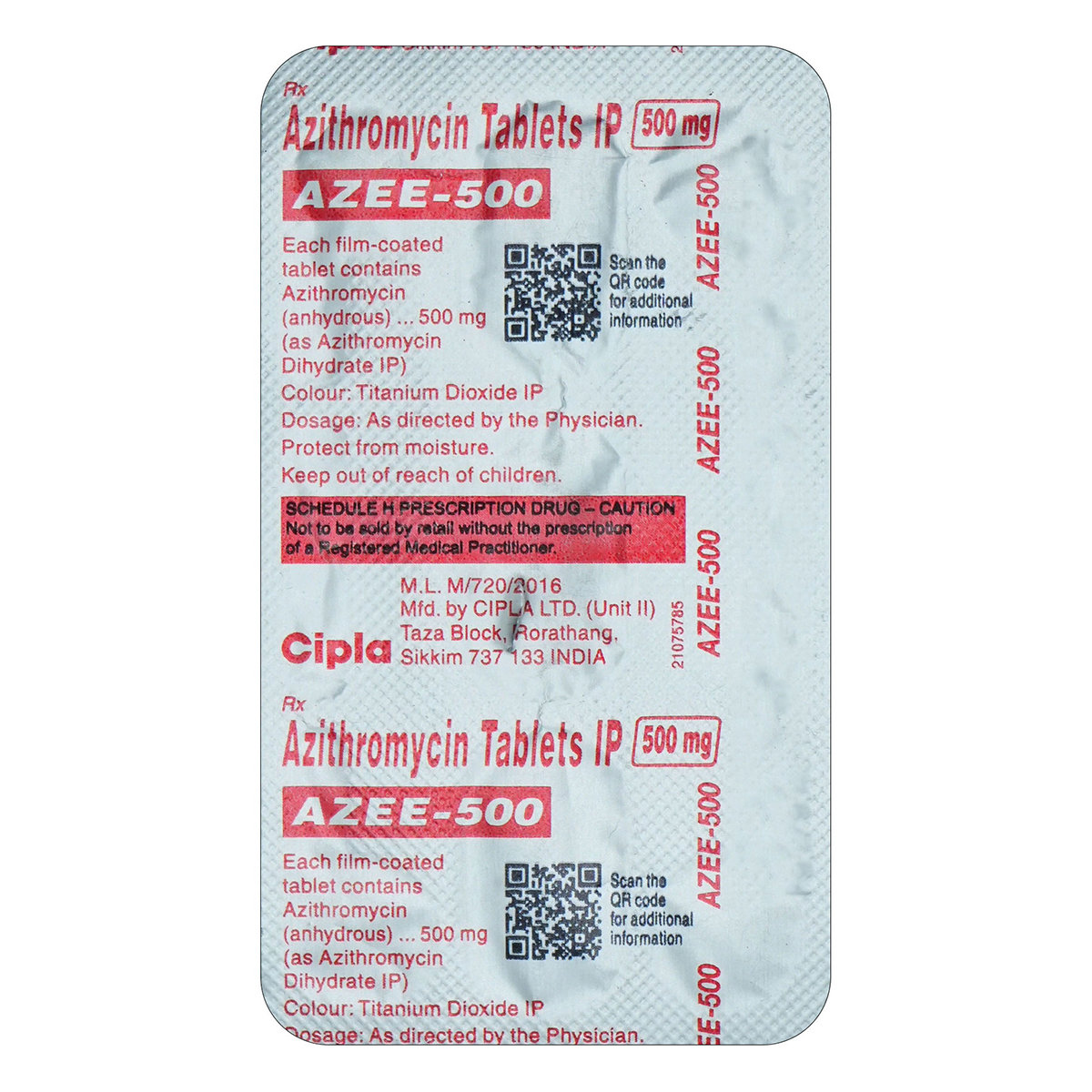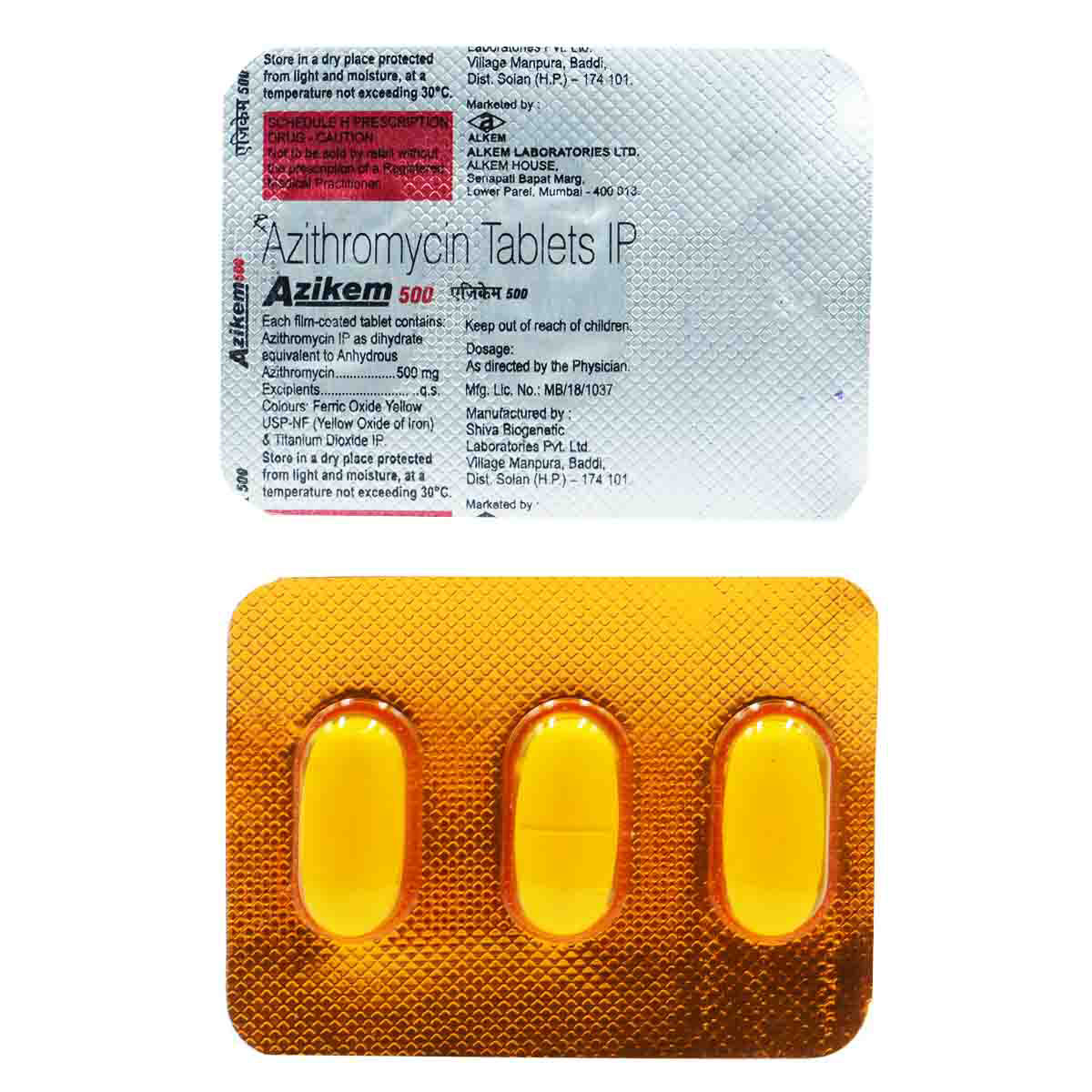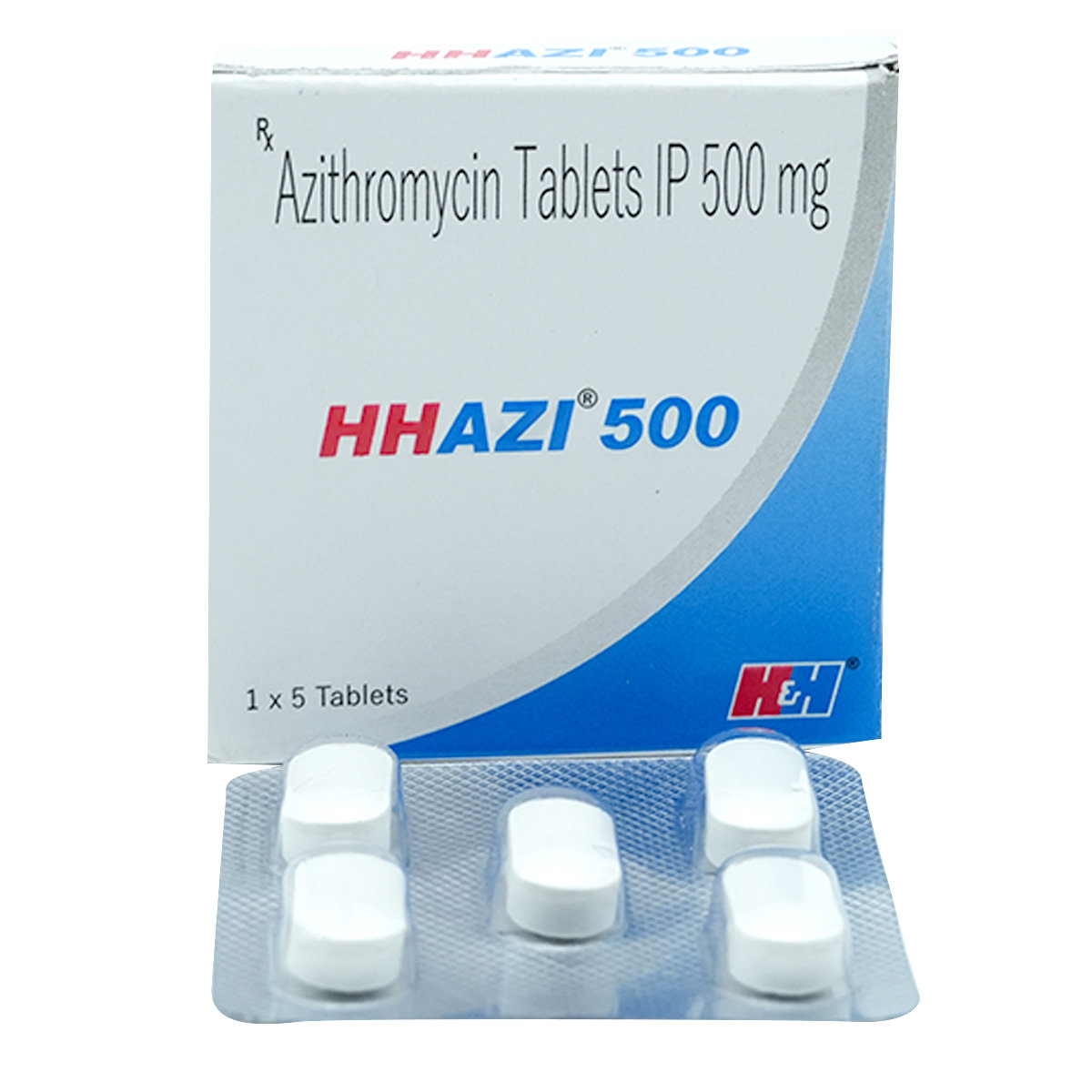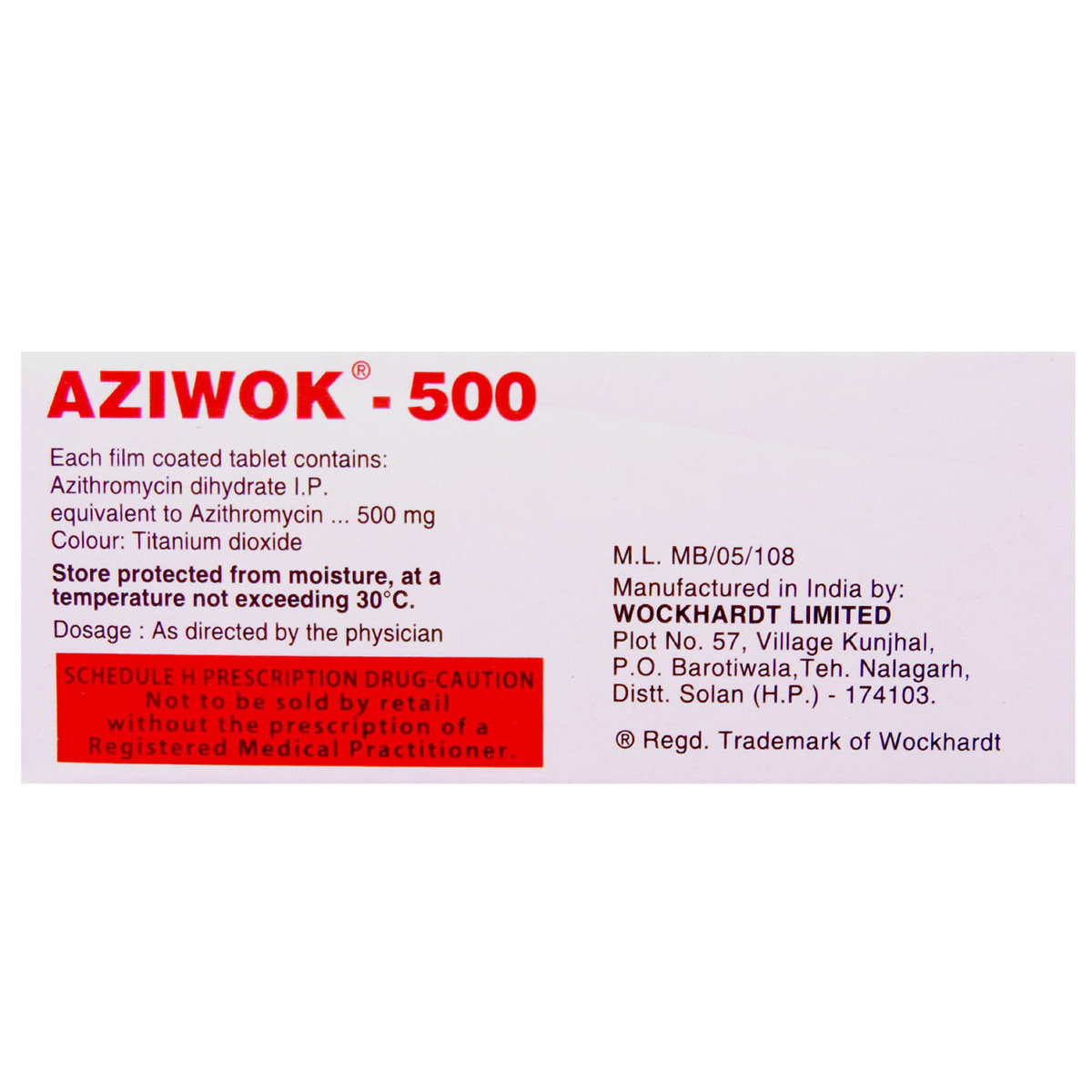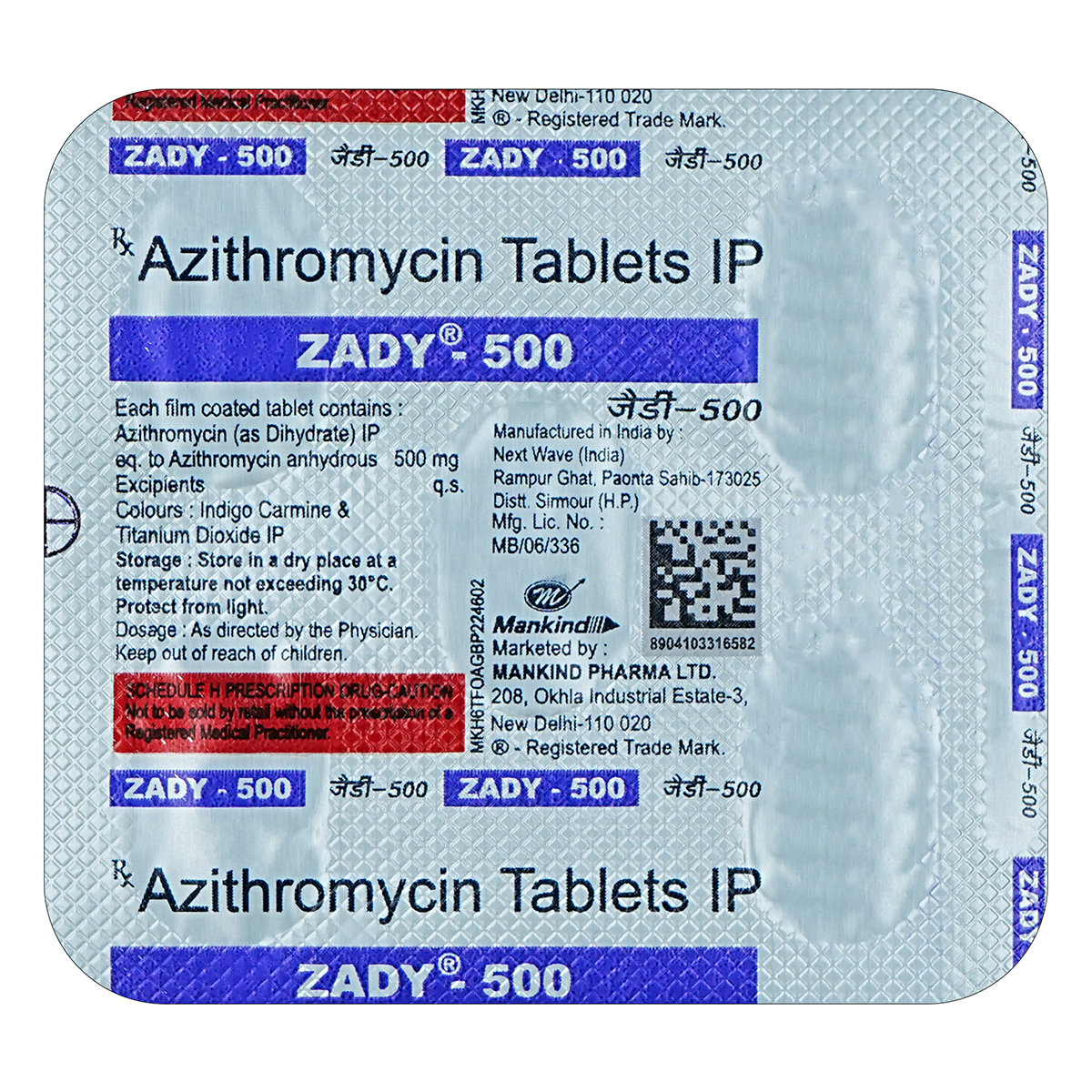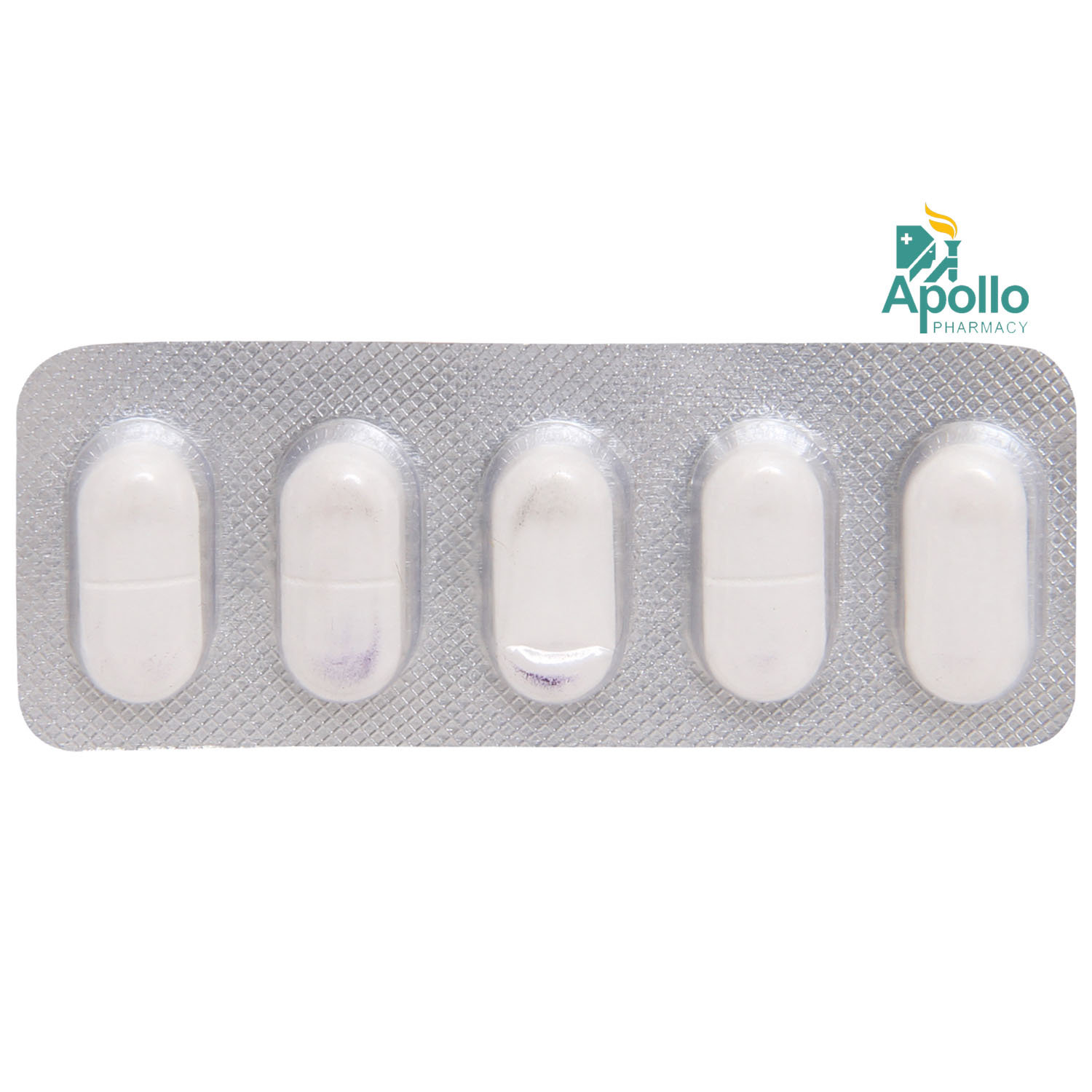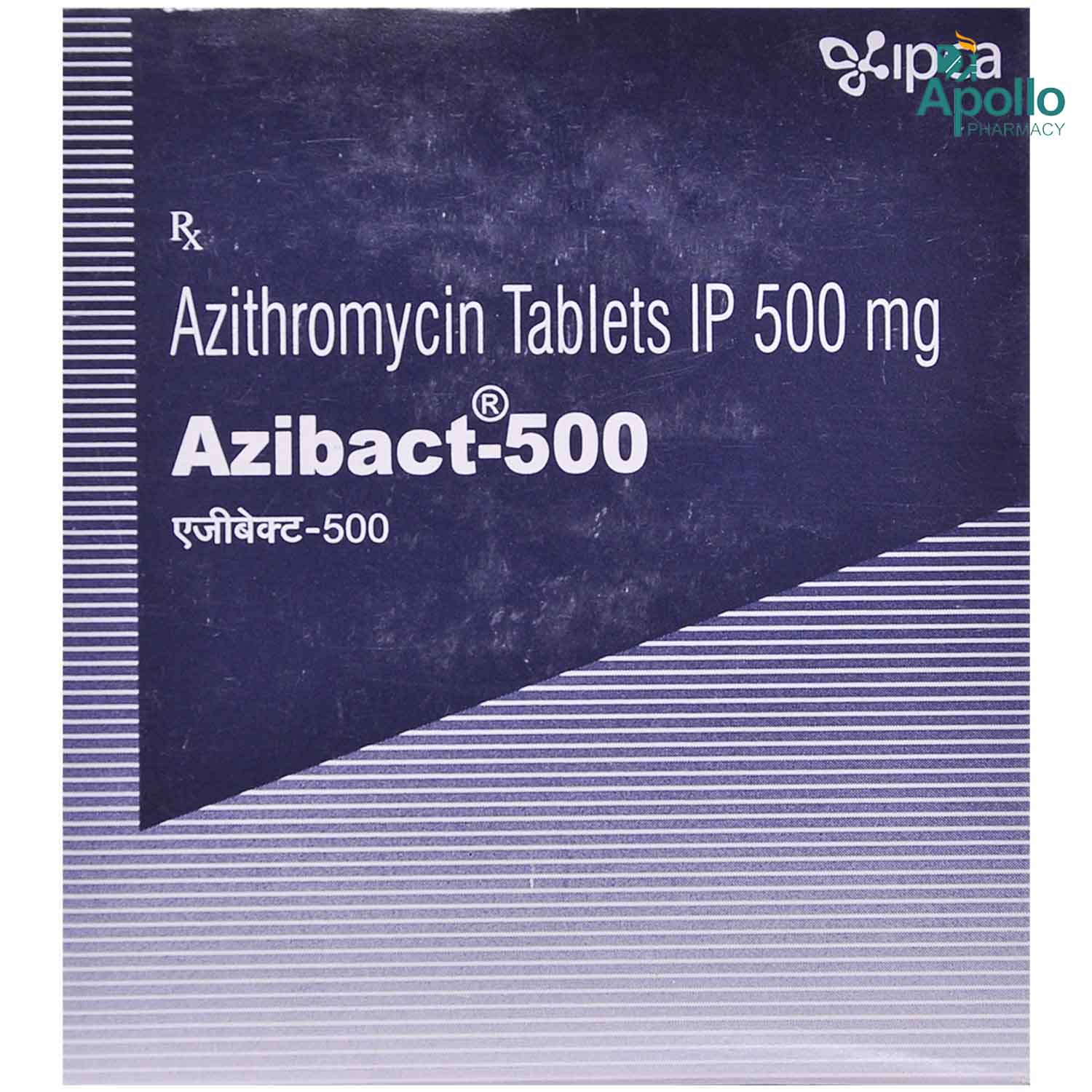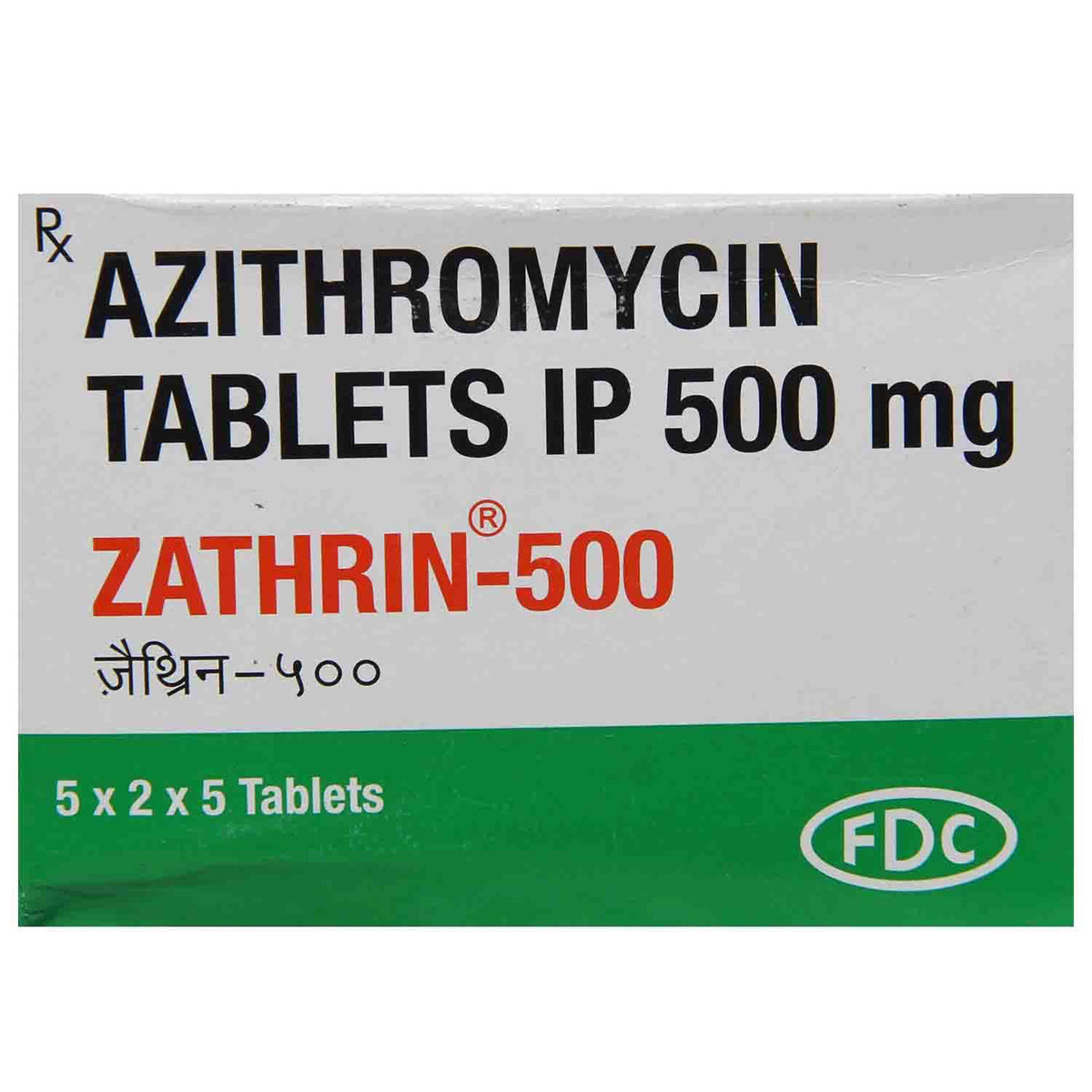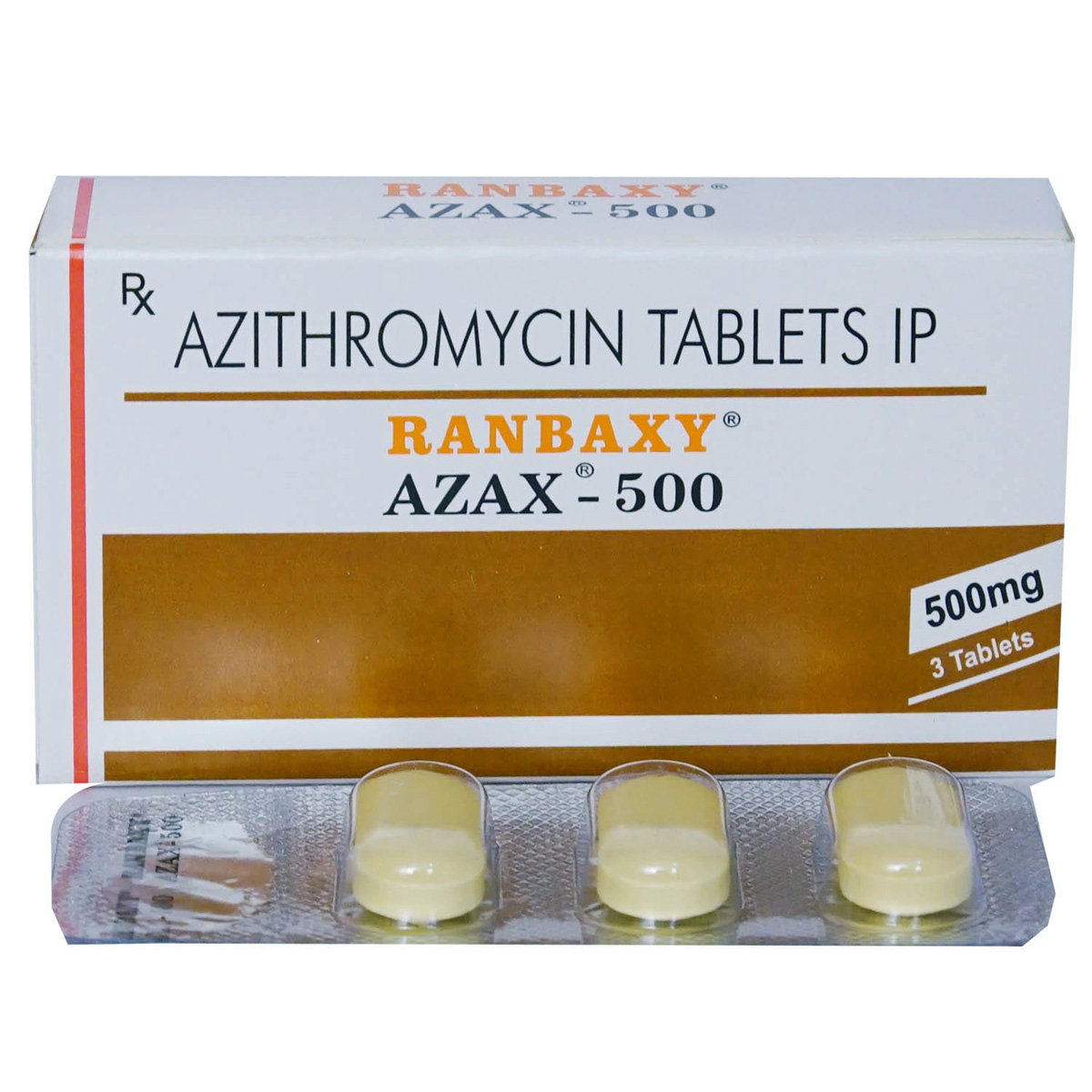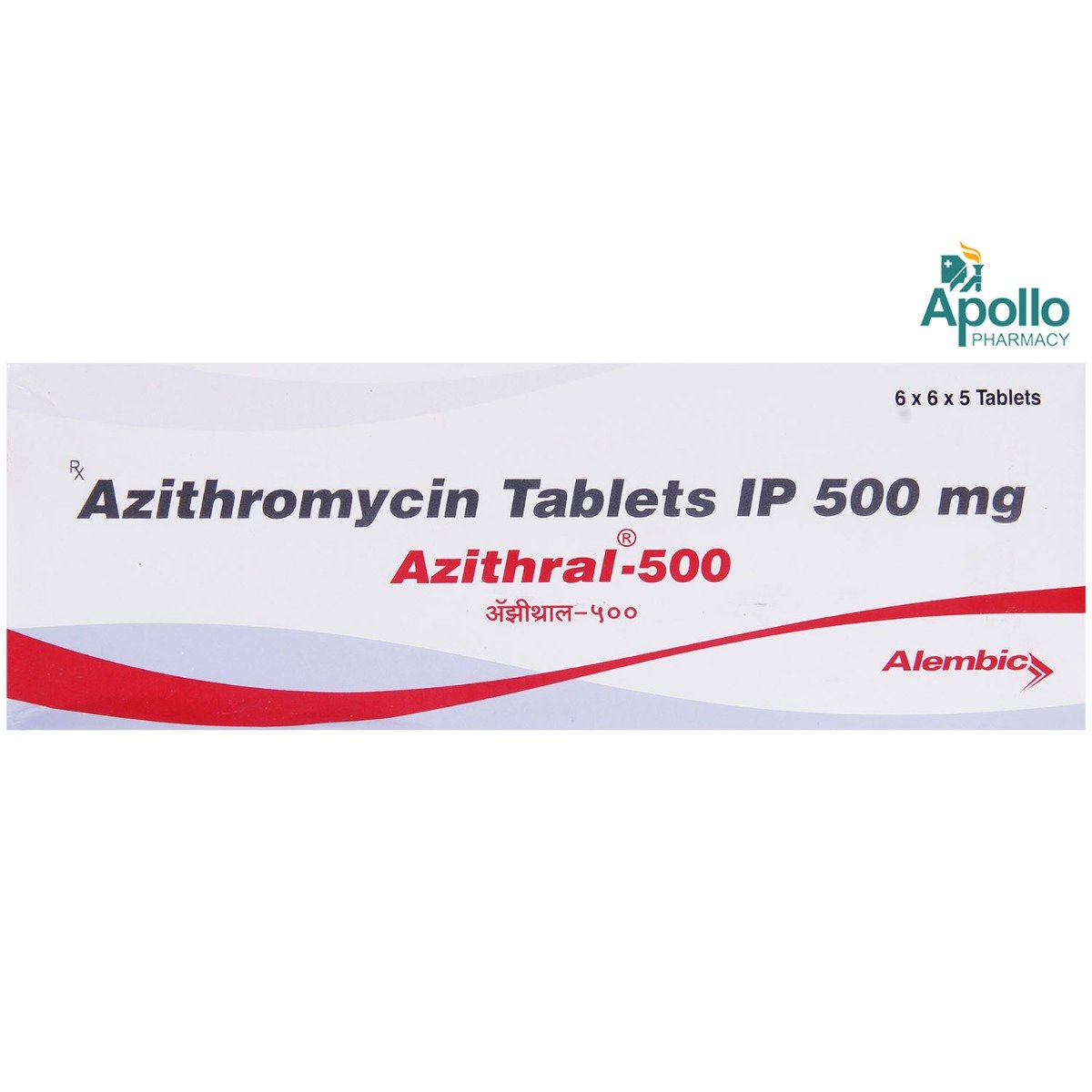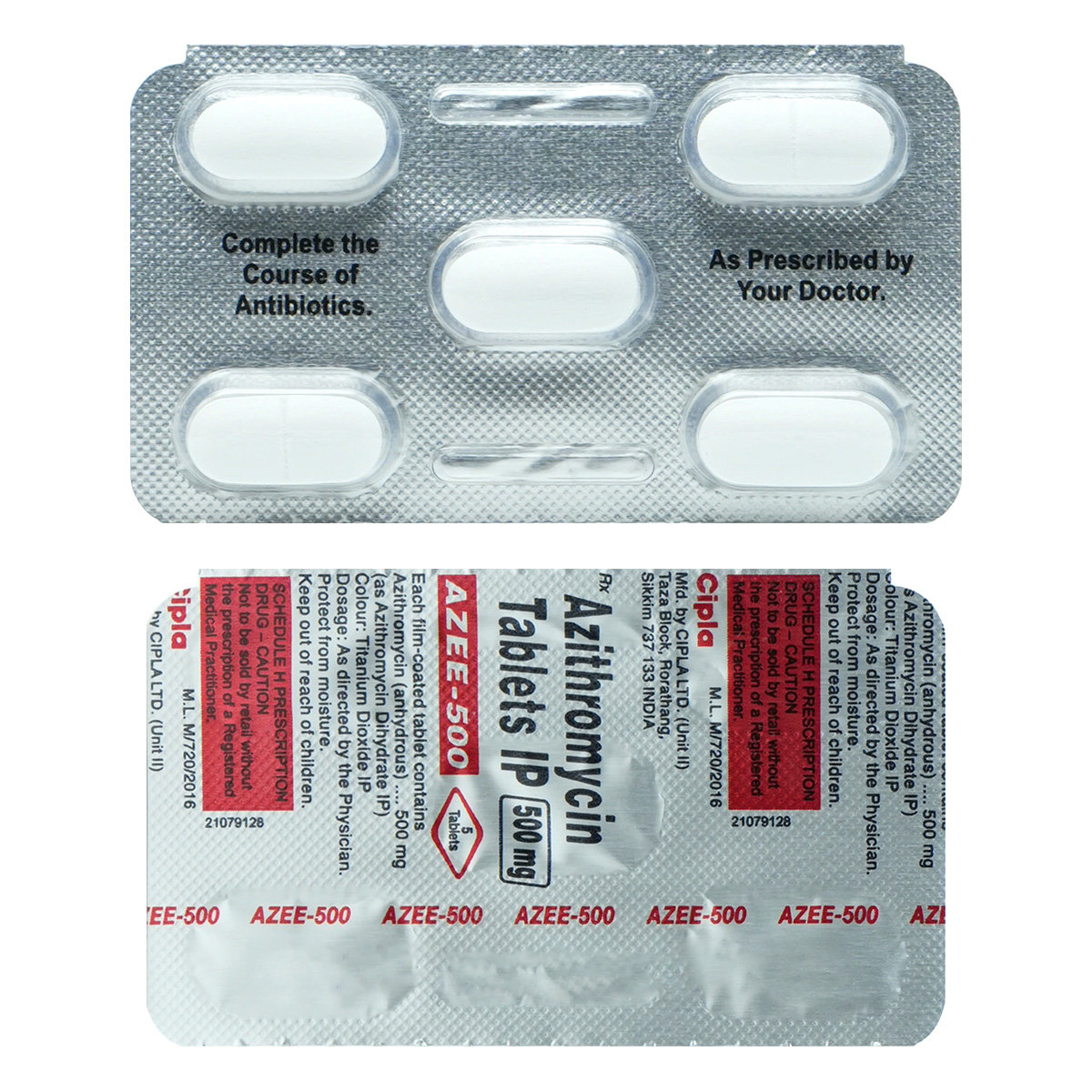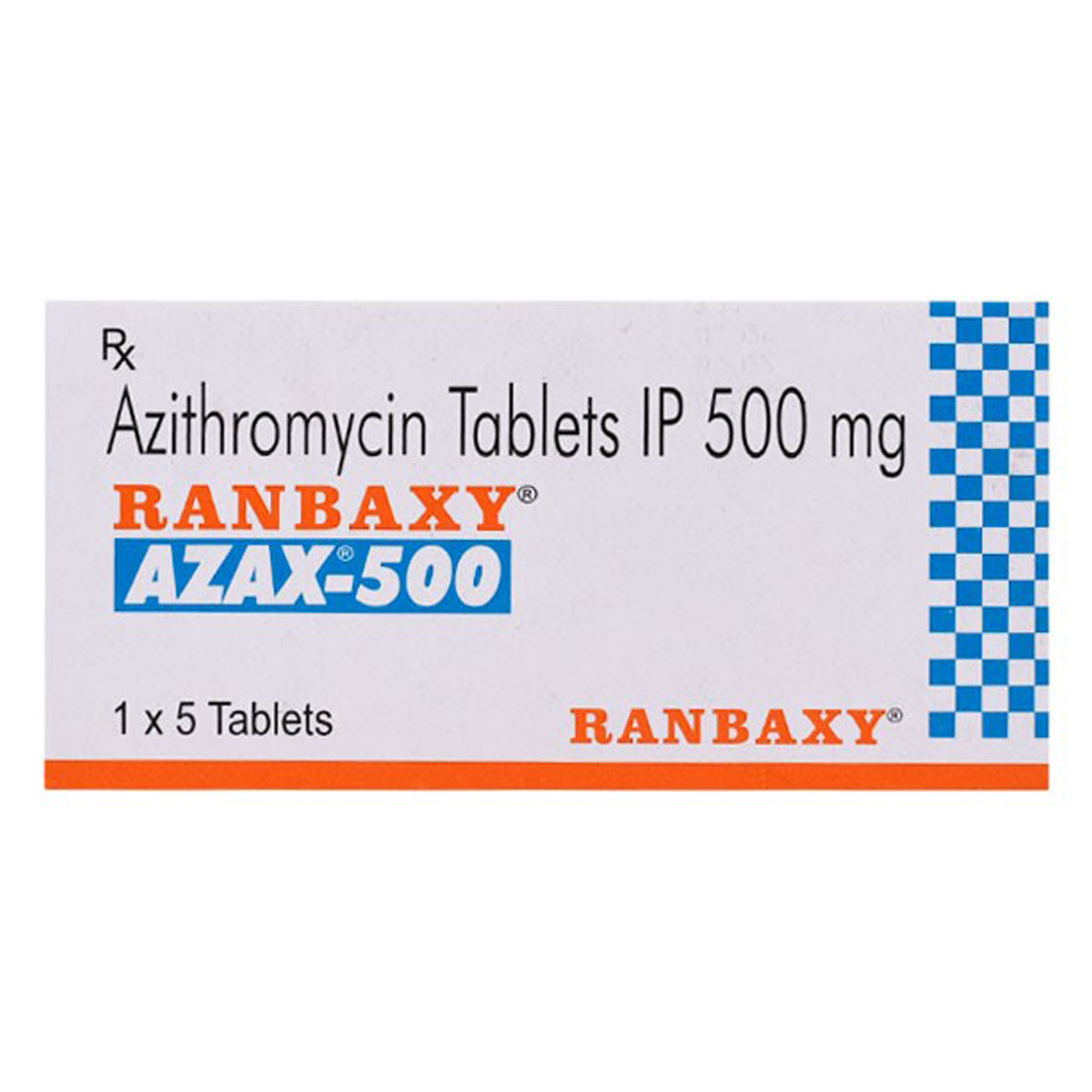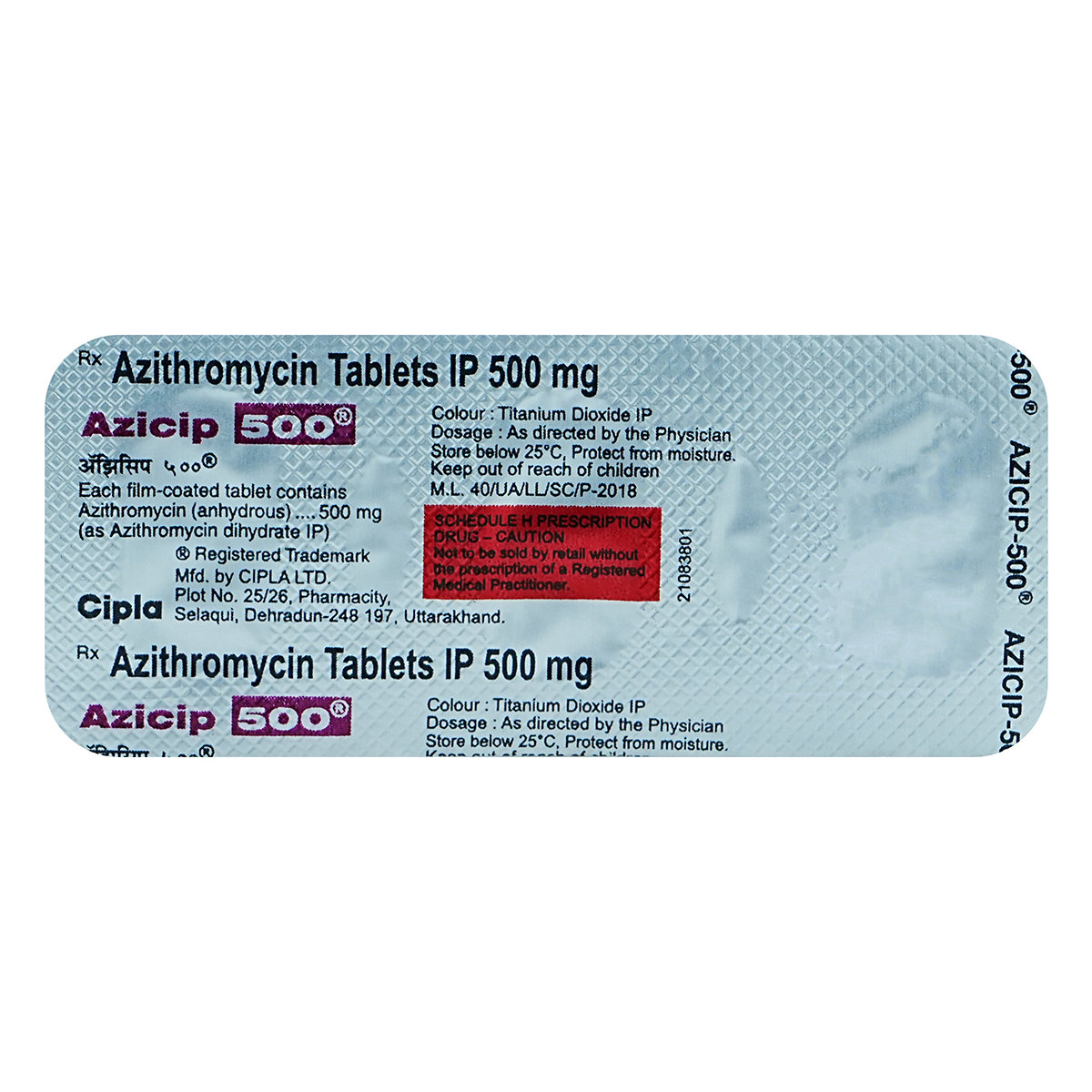Amy-500mg Tablet 5's
MRP ₹111.94
(Inclusive of all Taxes)
₹16.8 Cashback (15%)
Provide Delivery Location
Online payment accepted
 Prescription drug
Prescription drugWhats That
Composition :
Manufacturer/Marketer :
Consume Type :
Expires on or after :
Return Policy :
NPPA :
About Amy-500mg Tablet
Amy-500mg Tablet belongs to a group of medicines known as macrolide antibiotics. It is used to treat various respiratory system bacterial infections (like pneumonia, bronchitis, tonsillitis, pharyngitis and sinusitis), skin infections (like acne and rosacea), ear infections, and sexually transmitted infections. A bacterial infection is a condition in which bacteria grow in the body and cause infection. It can target any body part and multiple very quickly.
Amy-500mg Tablet slows the growth or sometimes kills the harmful bacteria by preventing the production of proteins required by the bacteria for its survival. Amy-500mg Tablet does not treat a viral infection like flu or a common cold.
Amy-500mg Tablet should only be taken if advised by your doctor. It can be taken with or without food but should be consumed at a fixed time for the best results. Amy-500mg Tablet should not be consumed more than the recommended dose, to avoid unpleasant side effects. And also, the course should be completed even if you feel better as it is an antibiotic. Some common side effects of Amy-500mg Tablet are diarrhoea, nausea, vomiting, and indigestion. An allergic reaction such as rashes, itching, swelling, and shortness of breath can occur in rare cases. Please consult your doctor if an allergic reaction becomes severe.
Tell your doctor if you have liver problems, muscle problems (myasthenia gravis), heart rhythm disorder (arrhythmia), or electrolyte imbalance (low potassium or magnesium level). You should consult a doctor if you have had diarrhoea for more than four days. However, do not take any anti-diarrheal medicine until your doctor tells you. It is unknown whether Amy-500mg Tablet harms the baby or passes into breast milk in pregnancy and breastfeeding state. Contacting a doctor before using Amy-500mg Tablet during pregnancy and while breastfeeding is better. Avoid too much exposure to sunlight as Amy-500mg Tablet can make your skin sensitive to sunburn. In this case, it is advisable to wear protective clothing or apply sunscreen (SPF 30 or higher) when you are outdoors.
Uses of Amy-500mg Tablet
Azithromycin is a macrolide antibiotic that treats various bacterial infections, such as:
- 1. Treat Bacterial Infections
- Respiratory tract infections (e.g. bronchitis, pneumonia)
- Throat infections (e.g. tonsillitis, pharyngitis)
- Ear infections (e.g. otitis media)
- Skin and soft tissue infection
- Sexually transmitted infections (e.g. chlamydia)
- Typhoid fever (in some cases)
Directions for Use
- Take Amy-500mg Tablet as prescribed by your physician.
- It can be taken with or without food. .
- Swallow the medicine as a whole with a glass of medicine. Do not chew or crush or break the tablet.
Key Benefits
Amy-500mg Tablet slows the growth or sometimes kills the harmful bacteria by preventing the production of proteins required by the bacteria for its survival. It prevents and treats bacterial infections like throat and sinus infections, chest infections (like bronchitis and pneumonia), ear infections, mouth and dental infections, eye infections, skin and tissue infections (like acne), and stomach and intestinal infections. It is better tolerated and has more effective tissue penetration than other similar antibiotics like erythromycin. Doctors prescribe Amy-500mg Tablet for people who are intolerant to penicillin antibiotics. Besides this, it also helps prevent infection following burns, surgery or dental procedure, sexually transmitted infections, bone infections or scarlet fever (bacterial illness with strep throat).
Storage
- Inform Your Doctor: Notify your doctor immediately about your diarrhoea symptoms. This allows them to adjust your medication or provide guidance on managing side effects.
- Stay Hydrated: Drink plenty of fluids to replace lost water and electrolytes. Choose water, clear broth, and electrolyte-rich drinks. Avoid carbonated or caffeinated beverages to effectively rehydrate your body.
- Follow a Bland Diet: Eat easy-to-digest foods to help firm up your stool and settle your stomach. Try incorporating bananas, rice, applesauce, toast, plain crackers, and boiled vegetables into your diet.
- Avoid Trigger Foods: Steer clear of foods that can worsen diarrhoea, such as spicy, fatty, or greasy foods, high-fibre foods, and dairy products (especially if you're lactose intolerant).
- Practice Good Hygiene: Maintain good hygiene to prevent the spread of infection. To stay healthy, wash your hands frequently, clean and disinfect surfaces regularly, and avoid exchanging personal belongings with others.
- Take Anti-Diarrheal Medications: If your doctor advises, anti-diarrheal medications such as loperamide might help manage diarrhoea symptoms. Always follow your doctor's directions.
- Keep track of your diarrhoea symptoms. If they don't get better or worse or are accompanied by severe stomach pain, blood, or dehydration signs (like extreme thirst or dark urine), seek medical help.
- Inform your doctor about the nausea and discuss possible alternatives to the medication or adjustments to the dosage.
- Divide your daily food intake into smaller, more frequent meals to reduce nausea.
- Opt for bland, easily digestible foods like crackers, toast, plain rice, bananas, and applesauce.
- Avoid certain foods that can trigger nausea, such as fatty, greasy, spicy, and smelly foods.
- Drink plenty of fluids, such as water, clear broth, or electrolyte-rich beverages like coconut water or sports drinks.
- Use ginger (tea, ale, or candies) to help relieve nausea.
- Get adequate rest and also avoid strenuous activities that can worsen nausea.
- Talk to your doctor about taking anti-nausea medication if your nausea is severe.
- Record when your nausea occurs, what triggers it, and what provides relief to help you identify patterns and manage your symptoms more effectively.
- Drink water or other clear fluids.
- To prevent worsening of pain, limit intake of tea, coffee, or alcohol.
- Include bland foods like rice, toast, crackers, and rice in your diet.
- Avoid lying down immediately after eating as it may cause indigestion or heartburn.
- Avoid acidic and spicy food as it may cause indigestion.
- Consult your doctor if you experience skin redness, itching, or irritation after taking medication.
- Your doctor may adjust your treatment plan by changing your medication or providing guidance on managing your erythema symptoms.
- Your doctor may recommend or prescribe certain medications to help alleviate symptoms.
- Apply cool compresses or calamine lotion to the affected skin area to reduce redness and itching.
- Stay hydrated by drinking plenty of water to help alleviate symptoms and keep your skin hydrated.
- Monitor your skin condition closely and promptly report any changes, worsening symptoms, or concerns to your healthcare provider.
- Skin rash caused by allergies is due to irritants or allergens. Therefore, avoid contact with such irritants.
- Consult your doctor for proper medication and apply an anti-itch medication. Follow the schedule and use the medication whenever needed.
- Protect your skin from extreme heat and try to apply wet compresses.
- Soak in the cool bath, which gives a soothing impact to the affected area.
- If you experience symptoms like itching, burning, redness, or discharge after taking medication, consult your doctor immediately and share your symptoms, medication regimen, and medical history.
- Your doctor will assess your medication regimen to determine if it's contributing to the moniliasis and identify the best course of action to manage your condition.
- Your doctor may prescribe antifungal medications or recommend other treatments to help clear up the infection. They may also suggest self-care measures to help manage symptoms and prevent future infections.
- If your condition doesn't improve or persists, consult your doctor and report it. Your doctor will assess your progress, adjust your treatment plan, and provide advice to ensure the best outcome.
Drug Warnings
Tell your doctor if you have liver problems (jaundice), muscle problems (myasthenia gravis), heart rhythm disorder (arrhythmia), or electrolyte imbalance (low potassium or magnesium level). In rare cases, the use of Amy-500mg Tablet can cause diarrhoea, so if you have watery or bloody diarrhoea, stop taking Amy-500mg Tablet and call your doctor. However, do not take any anti-diarrheal medicine until your doctor tells you. It is unknown whether Amy-500mg Tablet harms the baby during pregnancy. Consult your doctor if you are pregnant, planning for pregnancy or breastfeeding before using Amy-500mg Tablet. Do not take Amy-500mg Tablet if allergic to azithromycin or other macrolide antibiotics. Inform the doctor if you are using cholesterol-lowering drugs (statins like simvastatin, lovastatin etc.), anti-gout or anti-arthritis drugs (colchicine) and medicine for treating overactive bladder (tolterodine). Amy-500mg Tablet is not recommended for the patients with pneumonia who are judged to be inappropriate for oral therapy due to moderate to severe illness or risk factors.
Drug-Drug Interactions
Drug-Drug Interactions
Login/Sign Up
Co-administration of BCG vaccine with Amy-500mg Tablet may reduce the effect of BCG vaccine.
How to manage the interaction:
If you are about to receive BCG vaccine, inform the doctor that you are taking Amy-500mg Tablet. Do not discontinue the medication without consulting a doctor.
Co-administration of methotrexate with Amy-500mg Tablet can increase the levels and side effects of methotrexate.
How to manage the interaction:
Although there is a possible interaction between methotrexate and Amy-500mg Tablet, you can take these medicines together if prescribed by your doctor. However, if you experience any symptoms such as tiredness, dizziness, fainting, unusual bleeding or bruising, chills, fever, sore throat, body pains. Consult a doctor immediately. Do not stop using medications without a doctor's advice.
Co-administration of Amy-500mg Tablet with doxycycline may reduce the therapeutic effect of Amy-500mg Tablet.
How to manage the interaction:
Although there is a possible interaction between Amy-500mg Tablet and Doxycycline, you can take these medicines together if prescribed by your doctor. Do not stop using any medications without consulting a doctor.
Co-administration of Amy-500mg Tablet and Cholera, live attenuated may reduce the activity of the vaccine.
How to manage the interaction:
If you are currently being treated with Amy-500mg Tablet or have been treated within the last 14 days, talk to your doctor before receiving cholera vaccine, live. Do not discontinue the medication without consulting a doctor.
Co-administration of Amy-500mg Tablet and Zalcitabine can be decreased when combined with Amy-500mg Tablet.
How to manage the interaction:
There may be a possibility of interaction between Zalcitabine and Amy-500mg Tablet, but it can be taken if prescribed by a doctor. Do not discontinue any medications without consulting a doctor.
Drug-Food Interactions
Drug-Food Interactions
Login/Sign Up
Diet & Lifestyle Advise
It would be best to take probiotics after taking the full course of Amy-500mg Tablet to restore some healthy bacteria in the intestine that may have been killed. Taking probiotics after antibiotic treatment can reduce the risk of antibiotic-associated diarrhoea. Certain fermented foods like yoghurt, cheese, sauerkraut and kimchi can help restore the intestine's good bacteria.
Include more fibre-enriched food in your diet, as it can be easily digested by gut bacteria which helps stimulate their growth. Thus fibre foods may help restore healthy gut bacteria after taking a course of antibiotics. Whole grains like whole-grain bread, and brown rice, should be included in your diet.
Avoid taking too much calcium enriched foods and drinks as it might affect the working of Amy-500mg Tablet.
Avoid intake of alcoholic beverages with Amy-500mg Tablet as it can make you dehydrated and affect your sleep. This can make it harder for your body to aid the Amy-500mg Tablet in fighting off infections.
Side Effects of Amy-500mg Tablet
Diarrhoea
Feeling or being sick (nausea or vomiting)
Stomach cramps
Loss of appetite
Bloating
Indigestion
Habit Forming
Therapeutic Class
All Substitutes & Brand Comparisons
RX
Azifast 500 Tablet 6's
Ipca Laboratories Ltd
₹148
(₹22.2 per unit)
10% COSTLIERRX
Azee 500 Tablet 3's
Cipla Ltd
₹74
(₹22.2 per unit)
10% COSTLIERRX
Azikem 500 mg Tablet 3's
Abbott India Ltd
₹74
(₹22.2 per unit)
10% COSTLIER
Drug-Diseases Interactions
Drug-Diseases Interactions
Login/Sign Up
Nearly all antibacterial medications have been associated with Clostridioides difficile-associated diarrhoea (CDAD), formerly known as pseudomembranous colitis, which can range in severity from mild diarrhoea to deadly colitis. Lincomycin and clindamycin are typically to blame. Antibacterial treatment disrupts the colon's normal flora, promoting the growth of C. difficile, whose toxins A and B contribute to the emergence of CDAD.
How to manage the interaction:
Amy-500mg Tablet should be used with caution in patients with a history of gastrointestinal disease, particularly colitis (inflammation in the large intestine) and pseudomembranous colitis (generally characterized by severe, persistent diarrhoea and severe abdominal cramps and sometimes associated with the passage of blood and mucus).
When given an aminopenicillin antibiotic for mononucleosis, patients may experience a pruritic, erythematous, maculopapular skin rash. Usually, the rash self-limits and goes away a few days after the offending chemical is stopped. The underlying mechanism has been suggested to be a changed drug metabolism or an immune-mediated process unrelated to drug hypersensitivity. Patients with mononucleosis shouldn't receive treatment with antibiotics containing aminopenicillin.
How to manage the interaction:
Amy-500mg Tablet should not be used in patients with mononucleosis (contagious infection caused by virus) as it may cause skin rash.
When utilising Clinitest®, Benedict's Solution, or Fehling's Solution to test for the presence of glucose in urine, high ampicillin concentrations in the urine may provide false-positive results. It is advised to use glucose tests based on enzymatic glucose oxidase reactions,as this effect may also occur with Amy-500mg Tablet.
How to manage the interaction:
High urine concentrations of Amy-500mg Tablet may result in false-positive reactions when testing for the presence of glucose in urine using Benedict's Solution or Fehling's Solution. Hence, it is recommended to use glucose tests based on enzymatic glucose oxidase reactions.
The kidneys remove the majority of beta-lactam antibiotics as unaltered drugs and, in some situations, as metabolites as well. In patients with poor renal function, the blood concentrations of beta-lactam antibiotics and their metabolites may rise, and their half-lives may be prolonged. According to the individual product package labelling, dosage modifications may be required. These alterations should be based on the severity of the infection as well as the degree of renal impairment. Renal function tests should be carried out on a regular basis during prolonged and/or high-dose therapy because these medicines have occasionally been linked to nephrotoxicity and changes in renal function.
How to manage the interaction:
Dose adjustments may be required in patients with kidney impairment. Kidney function tests should be performed at regular intervals during prolonged and/or high-dose therapy since nephrotoxicity (rapid deterioration in kidney function) and alterations in kidney function have occasionally been associated with the use of Amy-500mg Tablet.
FAQs
Drug-Drug Interactions Checker List
- DOMPERIDONE
- PIMOZIDE
- AMISULPRIDE
- ERGOTAMINE
- DIHYDROERGOTAMINE
- SIMVASTATIN
- TOLTERODINE
- COLCHICINE
Disease/Condition Glossary
Bacterial infection: A bacterial infection is a condition in which harmful bacteria enter, multiply, and infect our body. It can target any body part and multiple very quickly. When you get infected with bacteria, you can experience generalized symptoms like fevers, chills, and fatigue. Bacteria are of various forms comprising commonly spherical, rod, and spiral-shaped. Bacterial infections vary from minor illnesses like sore throat and ear infections to severe brain infections like meningitis and encephalitis. Few harmful bacteria that cause infections include Streptococcus, Staphylococcus, and E. coli. Anyone can become infected with a bacterial infection. But, people with weak immune systems or taking immunosuppressive medicine can make you more prone to bacterial infection.

Have a query?
Alcohol
Safe if prescribed
Amy-500mg Tablet should not be taken until prescribed if you are taking alcohol. Keep your doctor informed if you drink alcohol.
Pregnancy
Consult your doctor
There is insufficient information available about the use of Amy-500mg Tablet during pregnancy. Therefore you should not use Amy-500mg Tablet during pregnancy unless explicitly advised by your doctor.
Breast Feeding
Consult your doctor
Amy-500mg Tablet is partially passed through the mother’s milk, therefore it should not be used if you are breastfeeding.
Driving
Safe if prescribed
There are no data available about the influence of Amy-500mg Tablet on the ability to drive or operate machines. However, Amy-500mg Tablet may cause dizziness and seizures so make sure you are not affected before driving or operating machinery.
Liver
Consult your doctor
You should tell your doctor if you have liver problems as your doctor may need to alter the normal dose.
Kidney
Consult your doctor
You should tell your doctor if you have kidney problems as your doctor may need to alter the normal dose.
Children
Safe if prescribed
Safety and effectiveness in the treatment of patients under 6 months of age have not been established. So, it is not recommended for children less than 6 months of age. However, if the doctor has prescribed for the children more than 6 months Amy-500mg Tablet can be used.




